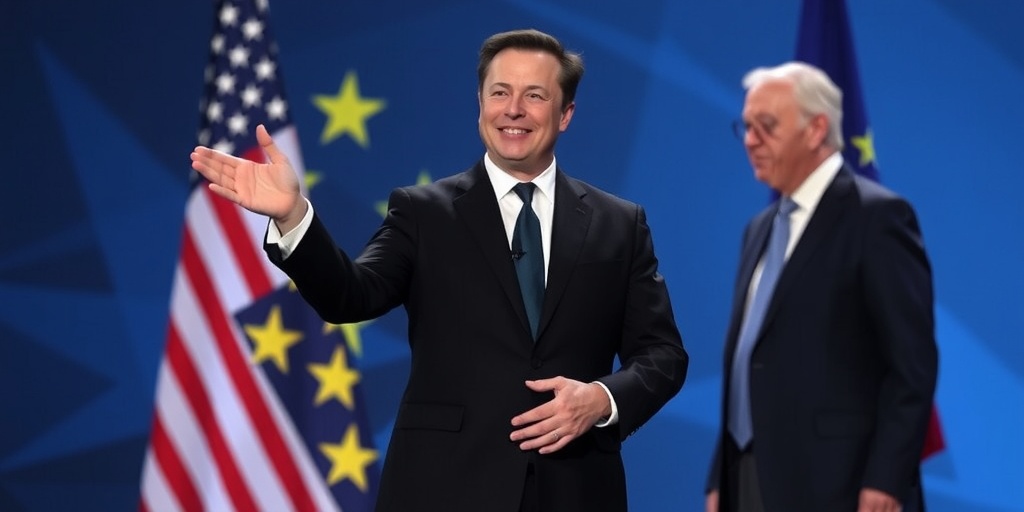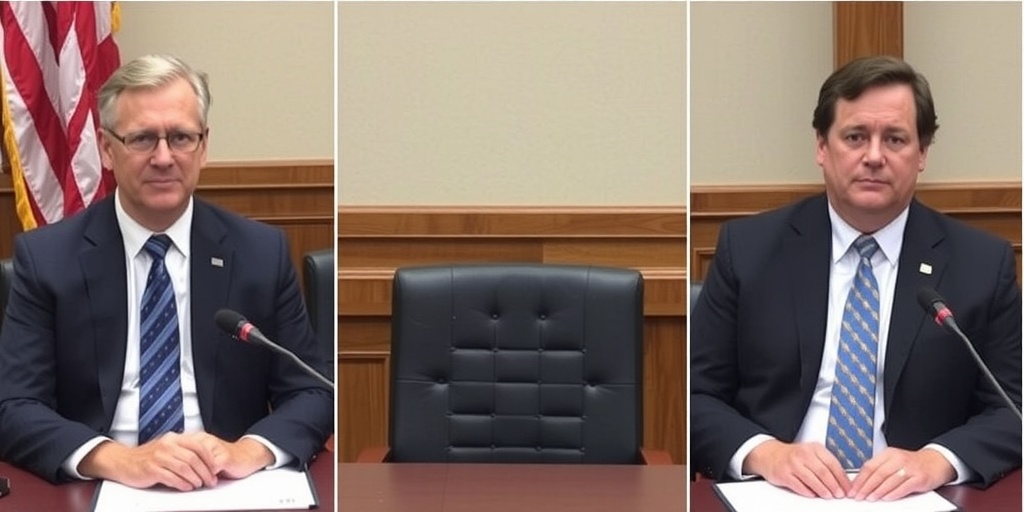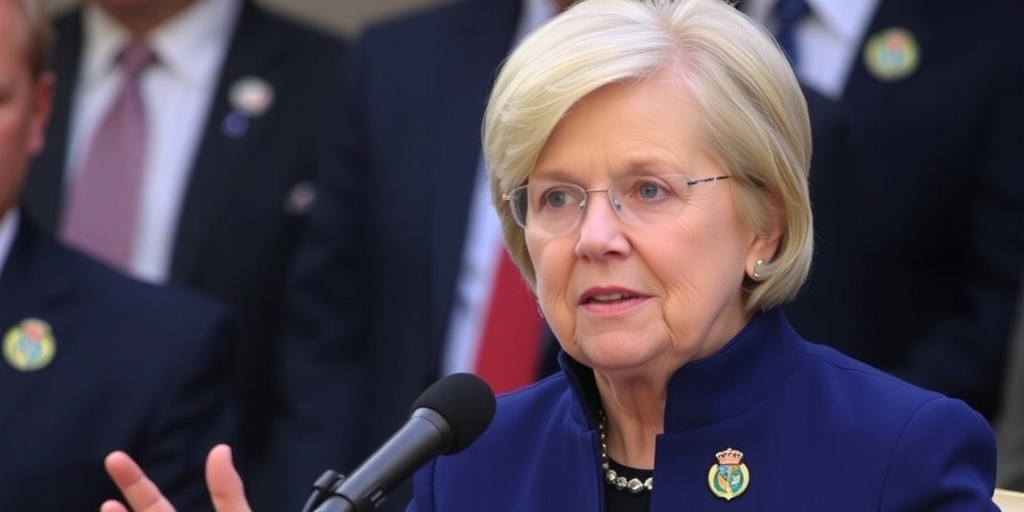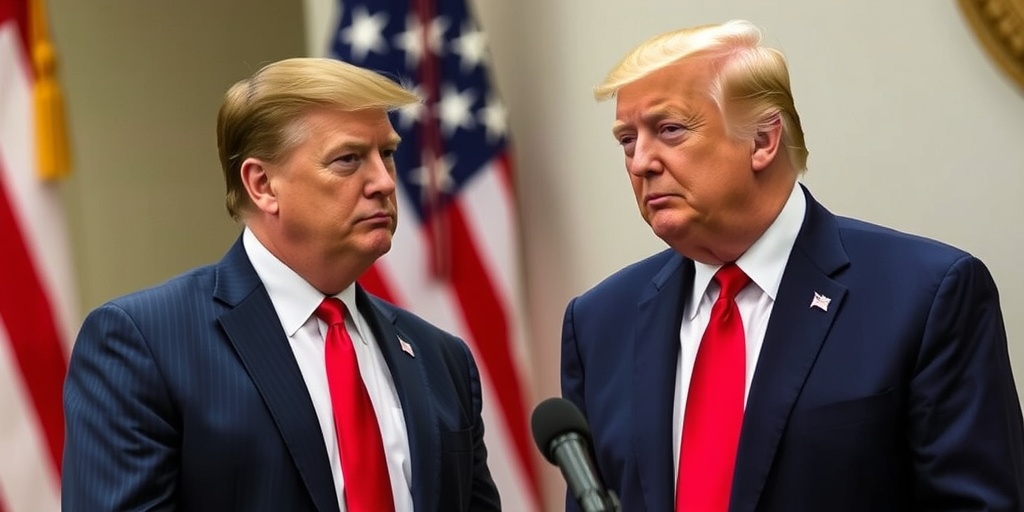Now Reading: Musk Advocates for Zero Tariffs Between Europe and U.S.
-
01
Musk Advocates for Zero Tariffs Between Europe and U.S.
Musk Advocates for Zero Tariffs Between Europe and U.S.

Elon Musk Advocates for Zero Tariffs Between the U.S. and Europe Amid Trump’s Recent Trade Policies
Just three days after President Trump’s announcement of significant tariffs, including a 20 percent tariff on goods imported from the European Union, Elon Musk expressed his hope for a more favorable trading environment between the United States and Europe. During a videoconference appearance with Italy’s far-right League party held in Florence, Musk suggested that both regions could move toward a "zero-tariff situation," which could potentially lead to the establishment of a free-trade zone.
Musk’s comments came on the heels of Trump’s controversial trade policies, which drew considerable criticism and support alike. While Musk had initially remained largely silent regarding Trump’s tariff announcements, his recent statements signal a desire for closer economic collaboration between the U.S. and Europe. He emphasized the importance of establishing a "very close partnership," contrasting this sentiment with the longstanding tensions between Trump’s administration and European leadership.
In his remarks, Musk underscored the need for broader freedom of movement between Europe and North America. This perspective appears to run counter to the views frequently vocalized by members of Trump’s administration, who have often adopted a more protectionist stance toward international relations. For instance, Trump himself has previously claimed that the European Union was created with the intention to "screw" the United States, highlighting the deep-rooted frictions between American and European economic policies.
The billionaire entrepreneur and his relationship with Trump have evolved significantly over time, with Musk having previously advocated for the elimination of tariffs altogether during Trump’s first term, particularly between the United States and Britain. His recent remarks appear to reflect a rekindling of that sentiment, as he promotes an agenda that favors free trade, albeit amidst an increasingly protectionist global environment.
In addition to calling for reduced tariffs, Musk took a moment during his conference appearance to criticize Peter Navarro, one of Trump’s staunchest trade advisors known for promoting protectionist measures. In a series of posts on X (formerly Twitter), Musk mocked Navarro’s Ivy League education and suggested that he had not contributed significantly to any productive endeavors, positioning himself as a "builder" in the tech industry. Musk’s use of such language highlights his belief in meritocracy and tangible contributions, values he often emphasizes as central to his identity and success.
The significance of Musk’s relationship with far-right factions in Europe cannot be understated. His participation in the League party conference and his vocal support for figures like Marine Le Pen, the leader of France’s National Rally, serves to bolster populist movements across the continent. Recently, both Musk and Trump expressed solidarity with Le Pen, who faced embezzlement charges and was subsequently barred from holding public office. Such alignments have drawn scrutiny, particularly as Musk has also shown support for other far-right entities, including the German Alternative for Germany party, and has made headlines for his comments related to Italy’s immigration policies.
During the conference in Florence, Musk not only addressed trade issues but also touched upon concerns related to censorship and immigration, topics that resonate deeply within far-right circles. He stood alongside Matteo Salvini, the leader of the League party, further solidifying his association with European nationalist movements. Musk’s remarks included critiques of what he termed the overregulation by the European Union, a position that aligns closely with the party’s platform advocating for reduced governmental control in favor of individual liberties and free enterprise.
Musk’s foray into European politics illustrates how business leaders can play pivotal roles in shaping public discourse, especially in times of political upheaval. His outspoken nature and willingness to engage with controversial political figures may influence perceptions among his followers and customers, reinforcing a narrative that prioritizes economic collaboration while challenging established norms around trade and regulation.
As Musk continues to assert his influence on both sides of the Atlantic, his advocacy for a zero-tariff regime may spark discussions about the future of U.S.-EU trade relations. The ongoing dialogue will undoubtedly reflect the complexities of modern geopolitical dynamics, especially as leaders navigate the balance between protectionism and free-market principles in an ever-evolving global landscape.
Maggie Haberman contributed reporting to this article.
Stay Informed With the Latest & Most Important News
Previous Post
Next Post
-
 01New technology breakthrough has everyone talking right now
01New technology breakthrough has everyone talking right now -
 02Unbelievable life hack everyone needs to try today
02Unbelievable life hack everyone needs to try today -
 03Fascinating discovery found buried deep beneath the ocean
03Fascinating discovery found buried deep beneath the ocean -
 04Man invents genius device that solves everyday problems
04Man invents genius device that solves everyday problems -
 05Shocking discovery that changes what we know forever
05Shocking discovery that changes what we know forever -
 06Internet goes wild over celebrity’s unexpected fashion choice
06Internet goes wild over celebrity’s unexpected fashion choice -
 07Rare animal sighting stuns scientists and wildlife lovers
07Rare animal sighting stuns scientists and wildlife lovers





















